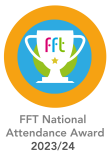Principles
-
All students are able and are entitled to an education that is both stimulating and challenging and which allows them to progress at a rate that is commensurate with their ability.
-
Some students will be classed as MAL based on their Key Stage 2 results in the core subjects.
-
Some students will be identified as Gifted in one or more areas of learning at some time during their school career.
-
Provision for MAL students is a matter of equality of opportunity.
-
Provision for MAL students will help to raise standards for all.
Rationale
Barking Abbey School will ensure that MAL students have the necessary opportunities to:
1. Use and develop their abilities
2. Explore their interests
3. Excel academically
We will also ensure that they can grow and develop in an environment where being more able and/or gifted is respected by all and that their achievements are celebrated.
This protocol should be considered together with the Learning and Teaching Framework.
Roles and Responsibilities
Provision
Extra-curricular enrichment
We provide a wide range of high-level extra-curricular enrichment opportunities e.g. through the MAL programmes and through subject-specific clubs and visits. Many faculties also offer students the opportunity to enter local and national competitions (e.g. UK Maths Challenge and Mock Trials). Other extra-curricular opportunities include:
-
Trips and visits
-
Subject clubs/workshops
-
Visiting speakers and Master classes
-
Internal and external competitions
-
Revision and enrichment provision for examination courses
-
Peer teaching/mentoring opportunities
-
Grouping of students in and within teaching groups is designed to promote differentiated learning at all levels.
Classroom practice
Extra-curricular provision is important but we believe that the main provision takes place in classrooms.
Our Learning, Teaching & Assessment Framework
1. Emphasises student independence through the development of high-level behaviour for learning skill.
2. Is based on an expectation that all students will be challenged and supported to make the most progress possible given their starting point.
3. Is underpinned by a quality first teaching approach based on an understanding of starting points, robust ongoing assessment of progress and a shared assessment outcomes (strengths and areas for improvement) and consistent and regular student response to feedback.
When planning the focus for stretching the more able is:
-
Broadening learning (going beyond the prescribed curriculum e.g.: just because they are in Year 7 does not mean they cannot attempt a GCSE question)
-
Deepening learning (developing mastery through application, evaluation or creating – layering challenge)
-
Linking learning (making connections with prior learning, other subjects e.g.: through problem solving and critical thinking)







